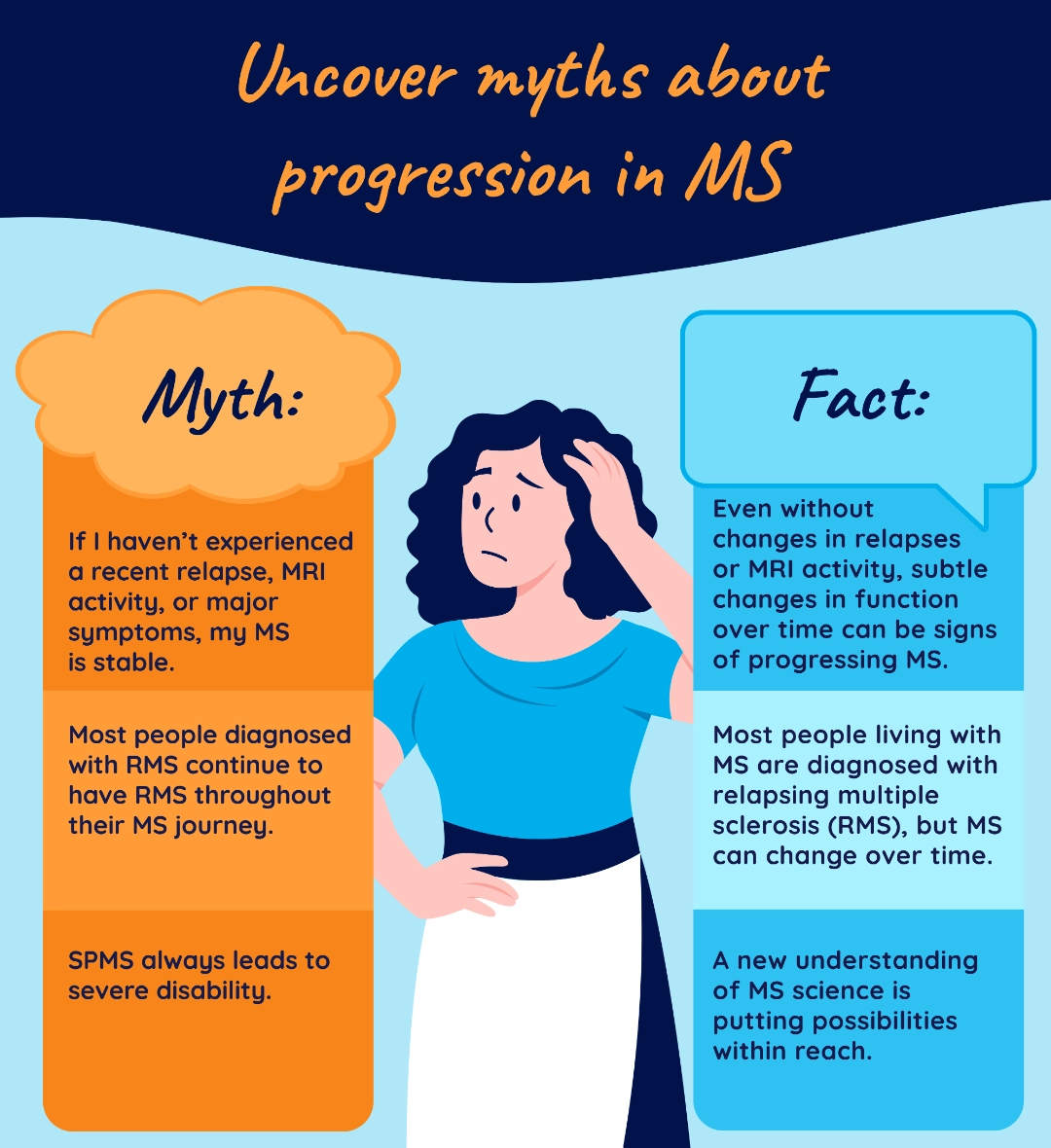- Article
- Source: Campus Sanofi
Uncover these 5 myths on progression in MS
Sort through several myths and facts surrounding MS progression so that you can better understand your MS and meet your MS goals.
Even without changes in relapses or MRI activity, subtle changes in function over time can be signs of progressing MS. Here are a few ways progressing MS can affect normal, everyday activities:
- Struggling to find the right words
- Lacking the energy to do usual activities
- Being unable to exercise the way you used to
- Tripping or losing balance unexpectedly
If you’re experiencing some of these symptoms, it could be a sign that your MS is changing. This could be due to progression independent of relapsesProgression independent of relapse activity (PIRA) means you are experiencing disability progression in the absence of relapses., or PIRA.
Did you know? In up to 90% of people with relapsing MS, disability progression happens without relapses, despite treatment
Myth: Most people diagnosed with RMS continue to have RMS throughout their MS journey.
Most people living with MS are diagnosed with relapsing multiple sclerosis (RMS)This type of MS means having symptom flares, known as relapses, followed by periods of recovery, known as remission. After a relapse, some people may not fully recover, which can lead to disability progression., but MS can change over time. 1 out of 3 people with relapsing MS will transition to secondary progressive MS (SPMS)A type of MS in which disability can increase regardless of relapses or changes in MRI activity. within 8 years. The idea of your MS progressing may be worrying, but know that you are not alone. Discussing changing MS with your healthcare provider can help ensure you receive the best possible care.
Myth: SPMS always leads to severe disability.
It’s normal to worry about your MS changing, but having SPMS doesn’t mean you will experience severe disability. The thinking around SPMS has evolved, and a new understanding of MS science is putting new possibilities within reach. What you do today can make a difference—identifying if you are experiencing progression without relapses can help you and your doctor better care for your MS.
Myth: If I had SPMS, it would be obvious to me and my doctor.
The transition to SPMS is usually a gradual process, not a sharp turning point. When people think of MS progression, many think about physical and mobility issues like using a cane or wheelchair, because the impact of these changes can be obvious. Now, we know that’s not the case. Many early signs of SPMS can go unnoticed or be mistaken for things like aging or stress. For example, you may start making accommodations or relying on your care partner to do more without knowing that your MS is changing. People may not realize a shift in their MS has happened until they look back and notice a change in their abilities over time, or a loved one provides an even clearer picture of your MS.
Myth: SPMS is the “end” stage of MS.
MS is a spectrum and can look different from person to person. SPMS is a progression of MS, but it doesn’t represent the final outcome of MS. Some people living with SPMS can continue to work, pursue hobbies, and build relationships. While MS can present challenges, you may still lead a meaningful life with MS by managing your symptoms and mental health.
No matter your experience with MS, be sure to keep an eye on the impact it has on your quality of life. Talk to your healthcare provider about any signs of MS progression you may have noticed, no matter how small, to ensure that you’re managing your MS as best as possible. Learn more about SPMS and the different types of MS here.





